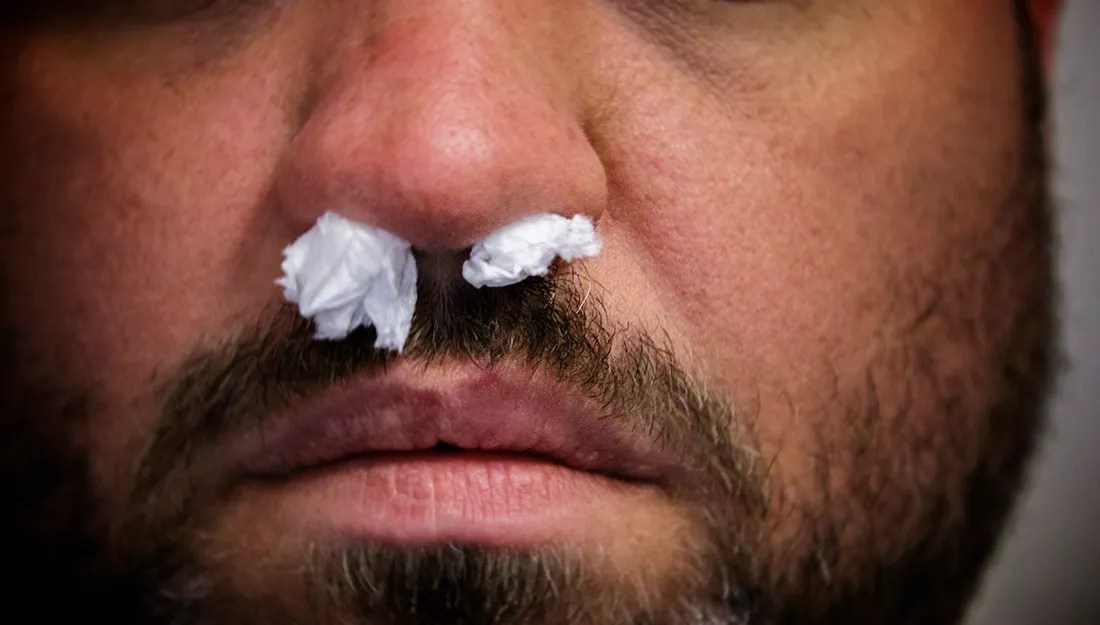Nosebleeds, or epistaxis, can be a troubling experience for many individuals, and the question of whether nicotine plays a role in their occurrence is a significant concern. As we delve into this topic, we will explore the relationship between nicotine consumption and the frequency of nosebleeds, shedding light on how nicotine affects the body, particularly the nasal passages. This article aims to provide comprehensive insights based on medical research and expert opinions.
Understanding the effects of nicotine on the human body is crucial for smokers and non-smokers alike. It is essential to assess the risks and health implications of nicotine consumption, particularly for those who may be experiencing recurrent nosebleeds. In this article, we will present a thorough examination of the mechanisms behind nosebleeds, the impact of nicotine on the respiratory system, and shed light on other factors that may contribute to this condition.
Through this exploration, we hope to empower readers with knowledge about the potential risks associated with nicotine use, as well as provide actionable recommendations for managing and preventing nosebleeds. Let’s dive into the details of how nicotine might influence this common health issue.
Table of Contents
- Introduction
- What Are Nosebleeds?
- Causes of Nosebleeds
- Nicotine and Nosebleeds
- How Nicotine Affects the Body
- Other Factors Contributing to Nosebleeds
- Prevention and Management
- Conclusion
What Are Nosebleeds?
Nosebleeds, or epistaxis, occur when the blood vessels in the nasal cavity rupture, leading to bleeding from one or both nostrils. They can be classified into two main types:
- Anterior Nosebleeds: These are the most common type, occurring from the front part of the nose.
- Posterior Nosebleeds: These are less common but can be more severe, originating from the back of the nasal cavity.
Nosebleeds can happen to anyone but are particularly common in children and older adults.
Causes of Nosebleeds
There are numerous causes for nosebleeds, which can be categorized into environmental, medical, and behavioral factors:
- Environmental Factors: Dry air, especially in winter months, can dry out the nasal mucosa.
- Medical Conditions: Conditions like allergies, sinus infections, or clotting disorders can increase the likelihood of nosebleeds.
- Behavioral Factors: Nose picking, forceful nose blowing, or even excessive sneezing can lead to bleeding.
Nicotine and Nosebleeds
Nicotine is a potent chemical found in tobacco products. While it is commonly associated with various health risks, its specific role in causing nosebleeds has been a topic of research. Here are some key insights:
- Vasoconstriction: Nicotine causes blood vessels to constrict, which may lead to increased blood pressure in the nasal vessels, potentially contributing to rupture.
- Dryness of Mucous Membranes: Smoking can dry out nasal passages, making them more susceptible to bleeding.
Studies indicate that smokers experience nosebleeds more frequently than non-smokers, suggesting a possible link between nicotine consumption and nasal bleeding.
How Nicotine Affects the Body
To understand the potential connection between nicotine and nosebleeds, it is essential to recognize how nicotine impacts the body, particularly the respiratory system:
Physiological Effects of Nicotine
Nicotine affects the body in several ways, including:
- Increasing heart rate and blood pressure.
- Causing vasoconstriction, reducing blood flow to various parts of the body.
- Decreasing the body’s ability to heal, which can exacerbate issues like nosebleeds.
Impact on Respiratory Health
Chronic exposure to nicotine through smoking can lead to various respiratory issues:
- Increased susceptibility to respiratory infections.
- Chronic inflammation of the airways.
- Impaired mucous clearance, leading to dryness and irritation in the nasal passages.
Other Factors Contributing to Nosebleeds
While nicotine may play a role, several other factors can contribute to the occurrence of nosebleeds:
- Allergies: Allergic reactions can cause nasal inflammation, leading to bleeding.
- Medications: Some blood thinners and anti-inflammatory medications can increase bleeding risk.
- Underlying Health Conditions: Conditions such as hypertension or bleeding disorders can predispose individuals to nosebleeds.
Prevention and Management
Managing and preventing nosebleeds involves several strategies:
- Stay Hydrated: Keeping the nasal passages moist can help prevent dryness.
- Avoid Nose Picking: This behavior can lead to injury and bleeding.
- Use a Humidifier: Adding moisture to the air can protect against dry nasal passages.
If nosebleeds persist, it’s essential to consult a healthcare professional for further evaluation and management.
Conclusion
In summary, nicotine may contribute to the occurrence of nosebleeds through mechanisms such as vasoconstriction and dryness of the nasal passages. However, it is essential to consider other factors that may also play a role. If you experience frequent nosebleeds, it is advisable to seek medical advice and explore ways to reduce your nicotine consumption.
We encourage you to share your experiences or thoughts in the comments below, and feel free to check out our other articles for more health-related insights.
Thank you for reading, and we hope to see you back here soon for more informative content!

:max_bytes(150000):strip_icc()/nicotine-addiction-101-2825018zhansentexteditcopy-8dc8cdd855104de4b3fc4c138c31bde6.jpg)


